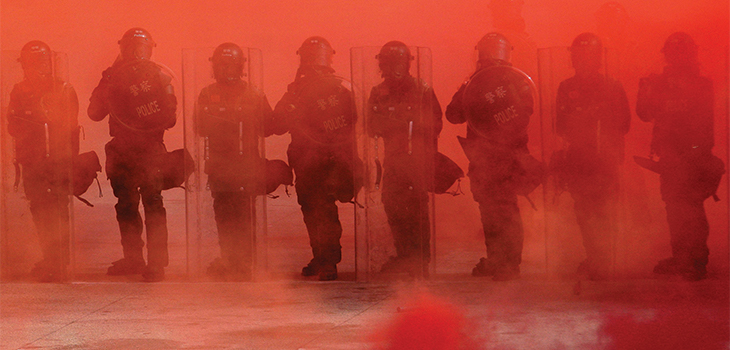
- The case of a migrant worker who was found guilty, despite copious evidence which did not support the prosecution case, and question marks surrounding his shooting by police.
In his illuminating article on the trial of Derek Chauvin for the murder of George Floyd in Minneapolis, Professor Michael Zander QC wrote that, ‘without video evidence, one wonders whether there would have been criminal charges, let alone a conviction’ (‘The US: jury unanimity needed (Pt 2)’).
In a police shooting case decided by the District Court of Hong Kong in April 2021, however, the gunshot victim was charged, convicted and given a heavy sentence for having attacked two police officers with a paper-cutter, despite the fact that the video evidence did not support the prosecution case at all.
HKSAR v Chow
On the morning of 7 November 2018, officers of the Police Tactical Unit









